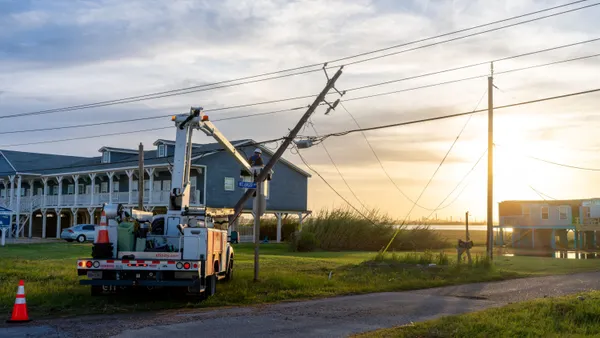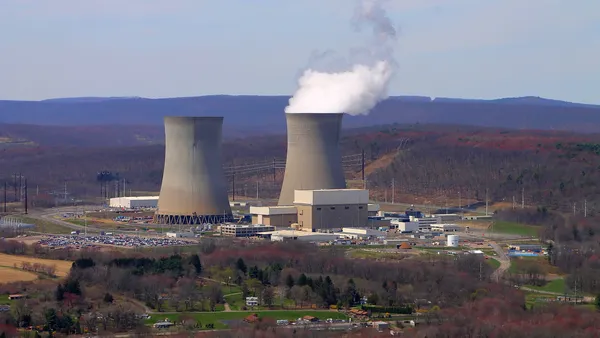Forcing businesses to pay for their greenhouse gas emissions would be the most efficient way to ensure financial markets reduced climate risk, a Commodity Futures Trading Commission (CFTC) subcommittee wrote in a report Wednesday. The report was approved by representatives of more than two dozen businesses, investors and nonprofits, including Citi, Morgan Stanley and JPMorgan Chase.
"Financial markets today are not pricing climate risk," wrote Bob Litterman, a former Goldman Sachs executive, who leads the subcommittee. "Until this fundamental flaw is fixed, capital will continue to flow in the wrong direction, rather than toward accelerating the transition to a net-zero emissions economy."
Neither markets nor regulators can do that on their own, the panel acknowledged, adding that such change would require lawmakers to act.
The report, which recommended regulators "move urgently and decisively to measure, understand and address" climate risk, laid out 53 nonbinding resolutions that could serve to influence policy should Democratic former Vice President Joe Biden be elected in November.
Among its suggestions, the panel recommended the Securities and Exchange Commission (SEC) update its guidance on climate risk disclosure for better consistency among listed companies. It also said climate-related factors should be considered in pension investments.
The CFTC's climate risk subcommittee was convened by Democratic Commissioner Rostin Behnam. The Republican-led agency didn't vote on the report, but CFTC Chairman Heath Tarbert praised Behnam's "leadership on convening various private sector perspectives," while striking a cautious tone.
"The subcommittee's report acknowledges that 'transition risks' of a green economy could be just as disruptive to our financial system as the possible physical manifestations of climate change, and that moving too fast too soon could be just as disorderly as doing too little too late," Tarbert said, according to the Financial Times. "This underscores why it is so important for policymakers to get this right."
The report's potential impact hinges on the outcome of November's election. Nathaniel Keohane, a subcommittee member who serves as senior vice president for climate at the Environmental Defense Fund, told the Financial Times the findings could be essential when discussing the appointment of new CFTC and SEC commissioners, who must be confirmed by the Senate.
However, if President Donald Trump is reelected, the report will be "functionally shelved," Justin Slaughter, a consultant at Mercury Strategies and former CFTC aide, told The Wall Street Journal.
The report's authors emphasized financial markets' lack of preparation for the impact of climate change — from the physical damage it is causing to the cost of transitioning to a greener energy system.
Extreme weather events such as wildfires and hurricanes "pose significant challenges to our financial system and our ability to sustain long-term economic growth," Behnam said in a statement.
Litterman has argued for much of the past decade that market energy prices do not yet reflect greenhouse gas emissions' cost on society.
The U.S. wouldn't be the first market to experiment with carbon pricing. Cheaper natural gas, along with the rising cost of allowances, have shrunk coal's imprint on the power sector in Europe and factored into a 8.3% dip in emissions last year, Bloomberg reported.
Morgan Stanley and Citi in July both joined the Partnership for Carbon Accounting Financials, a consortium that intends to standardize the way banks measure and reduce their climate impact. Citi last year became the first major U.S. bank to endorse the United Nations' Principles for Responsible Banking. It pledged in April to stop providing financial services to thermal coal-mining companies by 2030.















